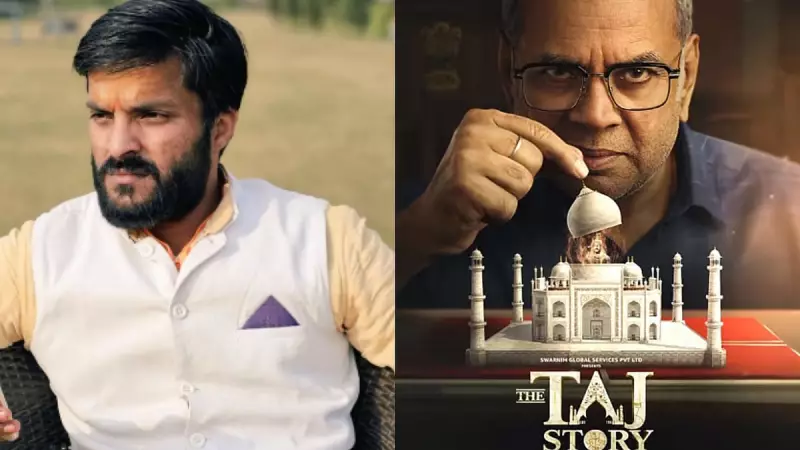
In a dramatic turn of events that has sent shockwaves through both political and entertainment circles, a prominent BJP leader from Uttar Pradesh has launched a formal campaign to stop the release of an upcoming film about the Taj Mahal.
The Controversy Unfolds
Dr. Amit Jani, the National Convenor of the BJP's Cyber Cell, has approached the Ministry of Information and Broadcasting with a urgent plea to ban "The Taj Story," a film directed by debutant Ravi Sharma. The core of Jani's argument rests on a startling claim: that the film's narrative is directly lifted from a petition he filed before the Lucknow Bench of the Allahabad High Court.
Historical Petition vs. Cinematic Story
Jani's petition, filed back in 2015, was no ordinary legal document. It sought a groundbreaking investigation into the Taj Mahal's history, requesting the Archaeological Survey of India (ASI) to open the monument's 22 locked rooms to uncover what he called "hidden mysteries." The petition also challenged the popular narrative surrounding the iconic mausoleum's origins.
"The filmmakers have taken the soul of my legal battle and fictionalized it without my consent," Jani stated in his communication with the ministry. He emphasized that his petition was the result of extensive historical research and personal conviction, making its unauthorized adaptation for commercial cinema unacceptable.
Legal and Ethical Questions
This case raises significant questions about the intersection of intellectual property, historical narrative, and creative freedom. Can a legal petition form the basis for copyright claims? Where does one draw the line between inspiration and infringement when dealing with historical subjects?
Jani has not taken this step lightly. His representation to the I&B Ministry includes detailed comparisons between his petition's content and the film's purported storyline, arguing that the similarities are too substantial to be coincidental.
Industry Reactions and Implications
While the film's producers have yet to issue an official statement, industry insiders are watching the development closely. This controversy comes at a time when Bollywood is increasingly exploring historical and political themes, making the outcome of this dispute potentially precedent-setting.
The Ministry of Information and Broadcasting now faces a delicate decision that could influence how real-life legal battles and historical research are adapted for cinematic storytelling in the future.
What's Next?
As the legal and administrative wheels begin to turn, all eyes are on the I&B Ministry's response. Will they intervene in the film's release, or will creative freedom prevail? The resolution of this conflict could redefine the boundaries between factual legal proceedings and fictional cinematic representation in Indian cinema.





